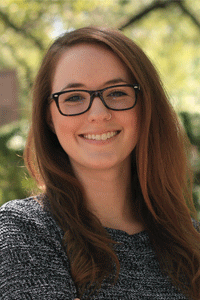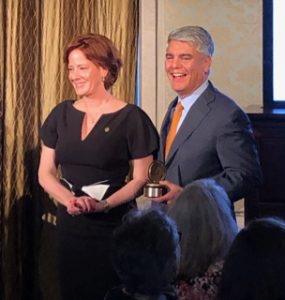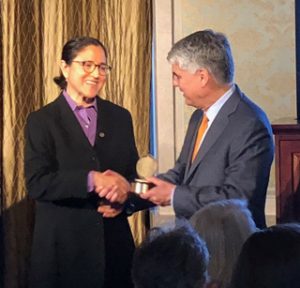By Maro Youssef, Meriem Aissa, and Suzie Abdou
It has been a decade since the Arab Spring uprisings and the subsequent calls for reform that resonated across North Africa and the Middle East. But how has life changed for women in the Maghreb in the years since?
In efforts to answer that question, we used survey data, field observations and interviews with women’s rights organisations and political parties to paint a clear picture of women’s rights in the region. Here’s what we found.
Algerian women take to the streets
Algeria is known for women’s participation as combatants in the War of Independence, which began in 1954 and ended with the nation’s independence in 1962.
But despite women’s efforts, in 1984 the state adopted a conservative family code that restricted their rights: requiring a male marriage guardian, barring Muslim women from marrying non-Muslim men, and restricting grounds for divorce for women.
Despite these challenges, however, women continued to resist – and have in recent years marked important milestones.
After Algeria adopted a gender quota to increase women’s political participation, women were in 2012 elected to 31.6% of the seats in parliament – the highest representation in the Arab world at the time. Currently, women hold 26% of seats in parliament.
Three years later, the nation adopted a comprehensive law prohibiting violence against women. Yet such violence continues to be a problem – and has worsened since the global COVID-19 pandemic, leading prominent Algerian actresses to launch a campaign against feminicides in October 2020.
Then when Algeria witnessed the start of a historic revolution in February 2019, women’s and youth participation were particularly notable. For more than a year, large protests took place across the country – including on 8 March 2019 and on the same day in 2020, when thousands of Algerian women from all sectors of society participated in demonstrations in celebration of International Women’s Day.
A new Moroccan feminism
In Morocco, the women’s movement was a key player in the 2004 family law reforms, which granted women the rights to self-guardianship, to divorce, and to child custody.
Moroccan women were also instrumental during the country’s 2011 mass protests, which became known as the ‘20 February Movement’. This movement produced a new form of feminism, which calls for democratic reforms pertaining to all Moroccans.
It was thanks in part to these feminists, that in 2019, after ten years of fighting for their rights, rural Soulalyat women – who are often poor, unskilled and uneducated – won equal access to communal land. The women had mobilised to form groups to confront their tribes and local authorities, and some have since been appointed to the boards of such land.
Another major legislative change brought about by women was the 2014 amendment to Article 475 of the Penal Code, which allowed rapists to escape punishment by marrying their victims.
Other recent legal gains for women include the raising of the minimum marriage age to 18; a law granting a woman the ability to divorce her husband in case of violence; and another requiring a man to have the permission of his first wife to marry a second woman, which has reduced polygamy.
But even now, many laws passed in support of women’s rights are not implemented by the courts or enforced by the police – and there’s a lack of political will by the Islamist government to follow Article 19 of the constitution, which states: “The man and the woman enjoy, in equality, the rights and freedoms of civil, political, economic, social, cultural and environmental character.”
Inheritance reform remains a key concern for feminists, with daughters currently entitled to inherit half of what their male relatives receive. Rape is still categorised as public indecency and marital rape is still not recognised as a crime.
What’s more, the country still has a long way to go on political representation. Only one woman minister was appointed after the 2011 elections that followed the 20 February Movement. But while women make up only 12% of local government, their numbers in parliament rose to 21% in the 2016 elections, up from 17% in 2011.
In Tunisia, women drive gender reform
No country in the region has made as many advances in women’s rights in the past decade as Tunisia. Women activists have worked closely with politicians to pass progressive gender reforms and served as watchdogs throughout the democratic transition. But many of them remain deeply concerned about potential backsliding on their rights.
Women were at the forefront of Tunisia’s revolution in 2010-11. Since then, they have been increasingly active in civil society and created between 183 and 300 new women’s organisations – including Islamists for the first time. (Before the revolution there were just two secularist organisations.)
Tunisian women activists pressured the state to commit to legal reform and provided input on all gender-related legislation especially the constitution and electoral quotas.
In 2011, Tunisia passed a gender quota that required political parties to alternate between women and men on their candidate lists. As a result, the same year, women secured 27% of seats in the constitutional drafting body, which helped women secularist activists and previously marginalised Islamists enter politics.
To further increase women’s presence in politics, Tunisia also passed one of the most progressive gender parity laws in the world in 2018, which requires political parties to alternate between women and men (vertical parity), but also requires that half of party lists are led by women (horizontal equality). As a result, women held 47% of seats in local assemblies after the 2018 local elections. After the 2019 legislative elections, women now hold 25% of seats in the national legislature.
In addition to gender quotas, in 2014 Tunisia passed one of the most progressive constitutions in the region, ensuring gender equality. Three years later it also passed Organic Law No. 58, which recognises marital rape and political violence.
Despite historical gains, the fight is not over. Women continue to suffer from violence, especially since the start of the COVID-19 pandemic, and street harassment and domestic violence have also both increased since the revolution.
Political violence has also worsened, especially during elections, particularly against secularists who speak out about women’s rights, such as the politician Bochra Belhaj Hmida, gender studies professor Amel Grami, and former spokesperson for the Presidency Saida Garrache.
Secularist activists are also concerned about inheritance inequality. In 2018, President Beji Caid Essebsi presented parliament with a draft inheritance law that gives families the right to choose between the existing inheritance law rooted in Islam or civil law, which would grant women equal inheritance.
Islamists reject the bill since it would divorce women’s inheritance from Islamic codes. Islamist party Ennahda called for a referendum and national dialogue instead of legal reform. This inheritance stalemate captures how women’s rights remain contested in Tunisia today.
The way forward
If Tunisia’s goal is to become a consolidated democracy, it must prevent backsliding on women’s rights and conservative backlash against women.
Both Tunisia and Algeria must fully implement their gender-based violence laws and take political violence against outspoken feminists and women politicians seriously. Morocco must implement and enforce recent legislations, otherwise any current or future legal reform will be nothing but a symbolic one.
Governments and civil society in the Maghreb have a responsibility to continue to educate all segments of the population on women’s rights. They must run comprehensive national awareness campaigns that include tribal leaders, community leaders and religious leaders – to reach all demographics. A diversity of partners lends legitimacy to a campaign and builds trust within communities.
Such campaigns can shift cultural and societal attitudes towards women. Governments and public education systems can work together with support from foreign donors, to reform education curricula in order to challenge gender norms. In this way, future generations can then transform their countries and families into more equitable structures.
Real change cannot be achieved with new laws alone, it requires practical implementation of all legal reforms by governments. It also requires the judiciary to prioritise appointing women judges to the higher courts, and especially those who practice ijtihad, or (re)interpretation of Islamic Jurisprudence. Ijtihad can increase women’s rights when it comes to issues based on Islam, including inheritance, polygamy and child marriage.
Protecting women also requires an increase in the number of women police officers or the establishment of units within the police that deal only with women’s safety. Foreign donors can support this through police or Ministry of Interior reform initiatives. This creates a safe space for women who suffer from domestic violence to come forward to report their abusers.
Despite these challenges, women will likely continue to draw on universal human rights standards and local and religious sources to fight for gender equality, whether it is within a monarchy or in a budding democracy.
This op-Ed was recently published in Opendemocracy.








